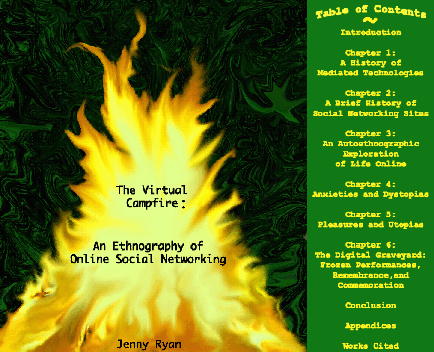Have anthropology journals ignored students? Is this one of the reasons for the popularity of anthropology blogs? Anthropology journals are not well known among students, Owen Wiltshire writes in his class assignment Why do anthropologists blog? A mini ethnography, a story, and a field report:
A restrictive publishing environment gives little voice to students. Not only that, but anthropology journals have ignored students and perhaps in doing this they have missed out on generating a name for themselves. As more and more material becomes freely available online, it becomes a matter of knowing where to look – and my small survey of students revealed that journals are not well known.
(…)
My small survey revealed that students had a hard time identifying a prestigious journal in their field, and the survey from Savage Minds shows that graduate students make up a large percentage of the readership. In my exploration of blogs I found a number of graduate students writing them. So perhaps the limited distribution of academic publishing contributes to the desirability of the blogsphere.
Owen Wiltshire found much “interesting thought” in the blogosphere and wonders if journal publications would only serve for the purposes of gaining prestige: “Everything is being said in conversations elsewhere, but is ‘proved’ in journals”.
In his text, he discusses several reasons for why anthropologists blog – or do not blog. Among other things he talked to several anthropologists who wish there was more room for new ways of writing anthropology.
Several students don’t want to share their thoughts online because they fear of having ideas “stolen”:
Another anthropology professor discussed the way societies he had studied were hierarchical, depending on secrecy and not necessarily the democratic exchange of knowledge – but as my interviews revealed many students worry that ideas can be stolen, and this is perhaps another reason people might have to not blog. Anthropologists in this sense are a hierarchical organization too, and secrecy is indeed a reason many do not feel comfortable sharing or discussing their ideas.
Here is his prelimarlary summary:
Why do Anthropologists Blog?
- Public engagement – feedback from beyond the discipline
- Less formal – much broader range of style, more complex ways of manipulating knowledge
(video, text, dynamic content)
- Community, feedback. Enjoy discussing ideas with others.
- Prestige – great place to get known, at least by other anthro bloggers
- Younger generation growing up with online publishing – not worried about privacy as much
- Perhaps an escape from work/professionalism when reflecting on anthropological ideas
Why Don’t Anthropologists Blog?
- Fear that their work isn’t good enough
- Do not want to have their name associated with it
- Generally not part of internet culture – accessibility
- Lack of time – anthropology is a professional topic – there aren’t many “amateur
anthropologists” – although this is one thing many bloggers want to change
- Fear of having ideas stolen – desire to “own” ideas.
- Prefer traditional publishing mediums – books
- Desire for more filtered knowledge
- Desire to maintain privacy outside of work
Wiltshire explored this issue by participation in the blogosphere through his own blog, and reading and writing on numerous other anthropology blogs. He also discussed blogging, sharing information, and public engagement with a focus group of six students, and multiple interviews with students and one professor – all at Concordia University.
>> read the whole text on Wiltshire’s blog
>> Follow-up post: forced vs free writing: “Students ignore journals, just as much as journals ignore students”
Related issues are discussed by Erkan Saka in an e-seminar at the EASA Media Anthropology Network 19 May – 1 June 2008. “Blogging as a research tool for ethnographic fieldwork”.
SEE ALSO:
Plans to study anthropological online communities and Open Access movement
Interview with Michael Wesch: How collaborative technologies change scholarship
antropologi.info survey: Six anthropologists on Anthropology and Internet
Paper by Erkan Saka: Blogging as a Research Tool for Ethnographic Fieldwork
On fieldwork: “Blogging sharpens the attention”
Blogging and Public Anthropology: When free speech costs a career
Danah Boyd on Open Access: “Boycott locked-down journals”
Success in publishing defined by quality? Anthropology Matters on “The Politics of Publishing”



